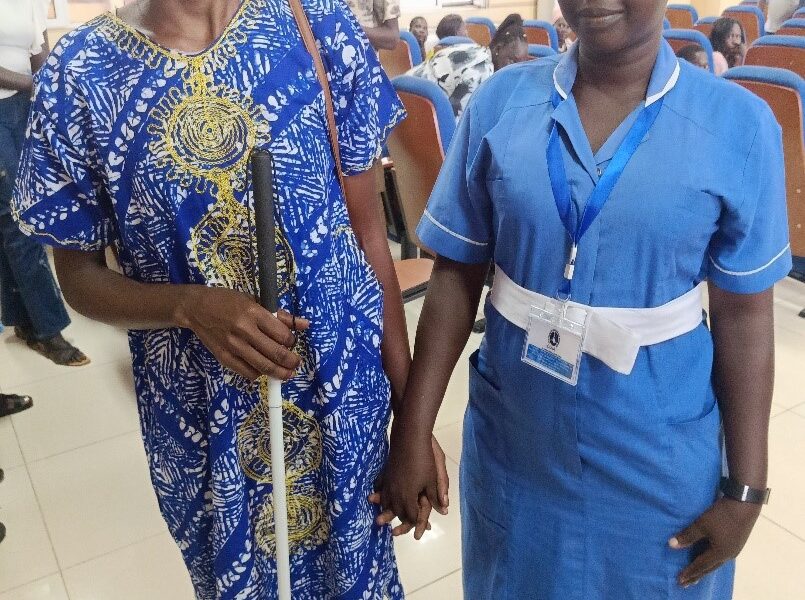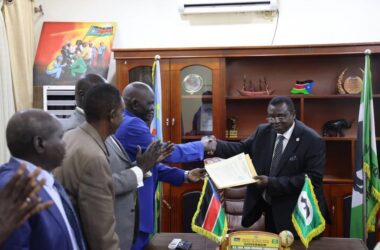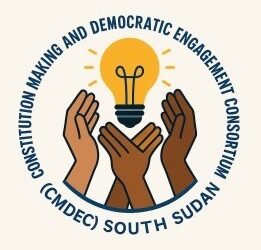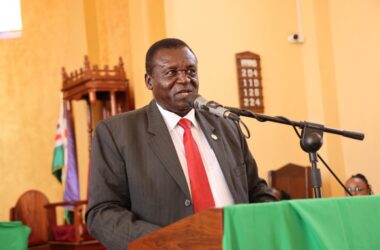By Kei Emmanuel Duku
People with disabilities (PWDs) feel neglected and marginalized from accessing essential services in the country.
Absence of essential resources such as sign language interpreters, dedicated support staff, wheelchairs, and patient lifts at government offices and facilities leaves PWDs in disarray.
Juba Teaching Hospital, for instance lacks lifts, lack of brail lessons in the country, and absence of sign language interpreters, severely impacts on rights of PWDs to access critical, life-saving healthcare and other services.
Easter Kwakina, who has a hearing impairment, experienced this firsthand when she visited Juba Teaching Hospital to attend the “International Day to End Obstetric Fistula.”
She had to wait for over an hour for organizers to find a sign language interpreter to assist her.
Easter noted that the lack of sign interpreters at the hospital makes communication between patients and doctors difficult. She explained that health workers cannot effectively explain prescriptions to patients with hearing impairments.
She further stated that the situation is worsened by inadequate beds for physically disabled women and a lack of patient lifts for moving them between hospital departments.
“Health experts don’t have sufficient knowledge on how to communicate with visually impaired patients,” Easter narrated through her interpreter.
“For example, it is difficult for me to share my sickness with doctors, particularly sexual and reproductive health complications. Additionally, patients who are physically disabled cannot climb or jump onto the high beds at the hospital.”
Easter appealed to the hospital management and the government to prioritize people with physical disabilities, especially women.
She emphasized the need for sign interpreters in public offices such as schools, courts, health centers, and churches.
She added that in the absence of support staff, wheelchairs and patient lifts should be provided for caretakers.
This would allow disabled individuals to access basic social services in hospitals or any public gathering.
She stressed that the government should also provide interpreters at the hospital to assist with translation whenever patients need health services.
Meanwhile, Mary Federico Loro, who is also physically impaired and uses walking Canes, highlighted the challenges facing both visually impaired and partially sighted individuals, including discrimination based on their disability status.
This discrimination, she noted, causes fear among women seeking sexual and reproductive health services, particularly HIV/AIDS services.
Mary also pointed out that many physically disabled people on the streets of Juba lack “Walking Canes,” and their absence often leads to insults from drivers, motorists, and other road users who question the presence of disabled individuals on the streets.
“At the Hospital, the beds in the Gynecological department are extremely high for visually impaired women to deliver on,” Mary stated. “How do you expect a woman who is completely crippled to climb on and off the bed when she can’t see? We need special beds for delivery.”
Mary further added that at the ART Clinic (Antiretroviral Therapy Clinic), disabled women have shunned seeking testing and counseling services at Juba Teaching Hospital due to the high level of stigma perpetrated by health workers.
She explained that often, when her colleagues visit the ART clinic for HIV/AIDS, Hepatitis, and other sicknesses, some health workers do not pay attention to patients with physical and other forms of impairment.
“Sometimes they [the public] ask, ‘Can a disabled person also have or produce children?'” she recounted. “Mind you, it’s only my eyes that cannot see, but naturally, my body is normal, it functions normally, like that of an able-bodied woman. Disability is not inability.”
Mary further noted that access to health services is a fundamental human right, and people living with impairment should not be discriminated against for their condition, as it is not by their wish.
She recounted that her firstborn is now 24 years old, and since giving birth, her child has never fallen into the fire.
Stella Kaka, a sign interpreter working with the Union of People with Hearing Impairment in Juba, stated that the Union currently supports over 200 people living with different forms of disabilities through six sign language translators.
She said the Union has social workers and trainers who educate people with disabilities on various activities, among which include the use of walking canes and communicating with interpreters.
Kaka also stated that she works as a teacher at the Buluk School for the Blind, and in the evening, she trains elderly people living with disabilities at the Union, as not all can be admitted to the school for the blind.
“Sign language is a fundamental right that grants access to information; it shouldn’t be overlooked,” Kaka asserted. “Hospitals, police stations, or court premises – these people [visually impaired] are human beings and can seek services in these public offices at any time. So, the government should consider integrating their needs into their budgeting and planning process because it’s a human right issue to access information.”
Dr. Anthony Lupai, the Director General of Juba Teaching Hospital, acknowledged the challenges facing People Living With Disabilities (PWD) at the hospital.
He said the hospital management currently relies solely on patients’ relatives or caretakers for support, either by interpreting or assisting with wheelchairs to move women accessing antenatal services upstairs at Juba Teaching Hospital.
He stated that the hospital currently lacks specialized personnel to help with translation, a situation made worse by the absence of volunteers.
“As hospital management, we encounter these challenges on a daily basis,” Dr. Lupai said. “When the patients come, we rely on their relatives or caretakers. However, as a way forward, the hospital would like to get its people trained and paid to do the translation work.”
Dr. Lupai, however, emphasized that the lack of sign language interpreters affects not only Juba Teaching Hospital but all health facilities across the states.
He added that the issue is beyond the mandate of the hospital administration and appealed to the National Ministry of Health to recruit and train specialized staff to help visually impa




